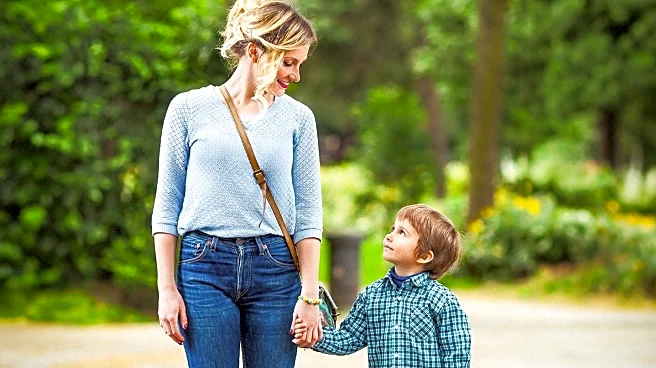What's Happening?
A child psychologist has identified nine key practices that parents can adopt to help their children develop exceptional social skills. These practices include talking openly about feelings, modeling empathy, fostering authentic confidence, teaching conflict resolution, validating feelings, recognizing social cues, allowing children to solve conflicts independently, treating mistakes as learning opportunities, and listening more than lecturing. The psychologist emphasizes that these practices help children build emotional vocabulary, empathy, confidence, and resilience, which are crucial for developing strong social skills. By creating an environment of emotional safety and authentic connection, parents can significantly influence their children's ability to communicate and connect with others.
Why It's Important?
The development of social skills in children is crucial for their success in personal and professional relationships. Children with strong social skills are better equipped to navigate social dynamics, resolve conflicts, and build meaningful connections. These skills are increasingly important in today's world, where emotional intelligence is valued alongside academic achievement. Parents who adopt these practices can help their children become empathetic, resilient, and socially aware individuals. This approach not only benefits the children but also contributes to a more compassionate and understanding society.
What's Next?
Parents and educators may consider integrating these practices into parenting and educational programs to enhance children's social development. Workshops and resources could be developed to guide parents in implementing these strategies effectively. Additionally, further research could explore the long-term impact of these practices on children's social and emotional development, providing valuable insights for future parenting and educational approaches.
Beyond the Headlines
These parenting practices also raise ethical considerations about the role of parents in shaping children's social skills and emotional intelligence. The emphasis on emotional safety and authentic connection challenges traditional parenting methods that prioritize discipline and academic success over emotional development. This shift could lead to broader cultural changes in how society views parenting and child development.










